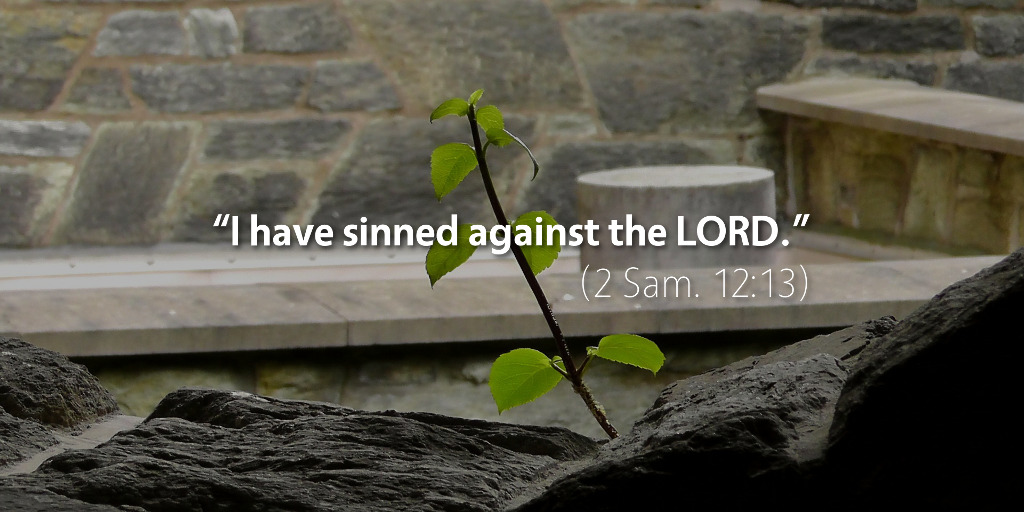Bible Readings for September 16th
2 Samuel 12 | 2 Corinthians 5 | Ezekiel 19 | Psalms 64–65
In 2 Samuel 12, we see the beginning of the aftermath of David’s sin with Bathsheba. In some ways, this sin will negatively affect the course of the rest of David’s reign. There are, however, some great principles to learn from this passage, both in the way that Nathan confronts David concerning his sin and also in the way that David responds to Nathan’s confrontation.
The first positive aspect of this story comes in Nathan’s confrontation of David. To start, we should recognize that Nathan is risking his status and even his life by confronting David about his sin, especially since David has already murdered to cover up that sin. But it is also interesting to examine the manner in which Nathan confronts David. Rather than coming to David and unloading all his anger on him for what he had done, Nathan comes to David with a story that captures David’s imagination and leads him to convict himself of the crime he has committed.1 Tact is a powerful tool for the shepherding of sinners.
Second, David’s unqualified repentance is another positive part of this story. David completely owns his sin, saying, “I have sinned against the LORD” (2 Sam. 12:13). Certainly, there is far more to David’s repentance than only these words (see Ps. 51 for David’s extended reflection on his repentance), but David does not do less than freely confessing his sin before Yahweh. Once David confesses, Nathan assures David that Yahweh has indeed pardoned him.
Beyond asking merely for forgiveness, David also boldly pleads with Yahweh to spare his unborn child, whom Yahweh had said would die (2 Sam. 12:14). Sometimes, the people we meet in the Bible simply accept Yahweh’s judgment (e.g., the priest Eli in 1 Sam. 3:18 or King Hezekiah in 2 Kgs. 20:19), but it is far better when God’s servants confidently come before Yahweh to ask him to relent (e.g., Moses in Deut. 3:23–28). David’s baby does die, but David’s confidence teaches us much about how we ought to pray.
Specifically, David’s example should give us bold confidence to deal with sin in our midst. Sin sometimes paralyzes us with fear, but the more we understand the gospel of Jesus, the more we should recognize that Jesus came precisely to heal us of our sinfulness. Jesus wants to confront our sinfulness with his boundless grace. The more we meditate on the gospel of Jesus, the less we find it necessary to protect the mirage of our own righteousness and the more confident we feel not only to repent of our sin and ask for forgiveness but also to pray that God would relent from disaster that may come as a consequence for our sins.
Where does sin bring fear into your own life, and how might Jesus be calling you to trust him with your sin in spite of your fears?
1 Warren W. Wiersbe, Preaching and Teaching with Imagination (Grand Rapids, MI: Baker Books, 1994), 51–55.
Podcast: Play in new window | Download (5.3MB) | Embed
Subscribe: Apple Podcasts | RSS | More

Scripture quotations are from The Holy Bible, English Standard Version copyright © 2001 by Crossway Bibles, a division of Good News Publishers. Used by permission. All rights reserved.


